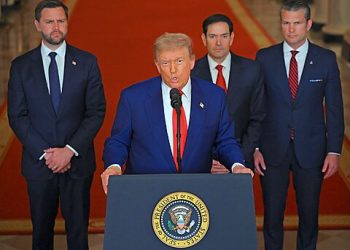The ending of the government’s furlough scheme will lengthen dole queues by 150,000 despite a boost to activity from the ending of lockdown that will make the UK the fastest-growing G7 nation this year, a leading thinktank has said.
In its quarterly update on the UK, the National Institute of Economic and Social Research (Niesr) said it had revised up its 2021 growth forecast from 5.7% to 6.8%.
But the thinktank said that even though the UK would move from the bottom to the top of the G7 league table for growth, there would still be a hit to jobs from the ending of wage subsidies at the end of September.
Niesr said the jobless rate would increase from 4.8% currently to 5.4% once the furlough scheme had been phased out, a smaller jump than it previously forecast.
Last week, official figures showed that the number of workers being paid through furlough had dropped to 1.9 million in June, ahead of cuts in the subsidy paid by the government.
The chancellor, Rishi Sunak, said in an interview on the social networking site LinkedIn on Monday morning he was confident that strong hiring intentions meant the “vast majority” of those still furloughed would find work.
On a day when fresh evidence emerged of cost and price pressures hitting UK manufacturers, Niesr forecast that the annual inflation rate would continue climbing from its current 2.5% and peak at 3.9% in the early months of 2022.
Hande Küçük, a deputy director of the thinktank, said: “Supply-side factors and effects of reopening amid the recovery in consumption are likely to keep inflation well above the Bank of England’s 2% target for the most part of next year.” She added it was time for the Bank to prepare the ground for an eventual increase in interest rates and the reversal of bond purchases under its quantitative easing programme.
Meanwhile, the latest snapshot of industry from IHS Markit/Cips found shortages of labour and materials were hindering the ability of Britain’s factories to take advantage of a post-lockdown boost in demand.
Despite posting another strong performance in July, the monthly survey found output and order book growth had slowed to the weakest in four months.
The report found that expansion would have been faster last month had it not been for stretched supply chains and problems with staff recruitment. Firms also reported continued difficulties adjusting to post-Brexit trading arrangements.
The July manufacturing purchasing managers’ index stood at 60.4 – well above the 50.0 cut-off point between an expanding and contracting sector, but down on the 63.9 in June and the record 65.6 reported in May.
IHS Markit/Cips said the July performance was still among the best on record, but would have been even better had it not been for supply constraints. Cost and price pressures increased during the month, the survey added.
Rob Dobson, a director of IHS Markit, said: “Although July saw UK manufacturers report a further month of solid growth, scarcities of inputs, transport and labour are stifling many businesses.
“On the one hand, manufacturers are benefiting from reopening economies. This is leading to solid inflows of new work from both domestic and overseas markets, including the US, the EU, China and the Middle East.
“On the other, the recent surge in global manufacturing growth has led to another month of near-record supply chain delays, exacerbated by factories and their customers building up safety stocks. Some firms also noted that post-Brexit issues were still a constraint on efforts to rebuild sales and manage supply and distribution channels to the EU.”
Manufacturers also experienced widespread staff shortages last month as workers self-isolated after being “pinged” by the NHS test-and-trace app.
James Brougham, a senior economist at the manufacturers’ lobby group Make UK, said: “We can now see the limiting impacts of the growing supply chain and input price disruptions on UK manufacturers’ road to recovery. Despite the growth over the last year as the industry digs itself out of the pandemic, this is the second consecutive month where the rate of that recovery has slowed.”
Read more:
End of furlough will increase UK unemployment by 150,000, says thinktank
















